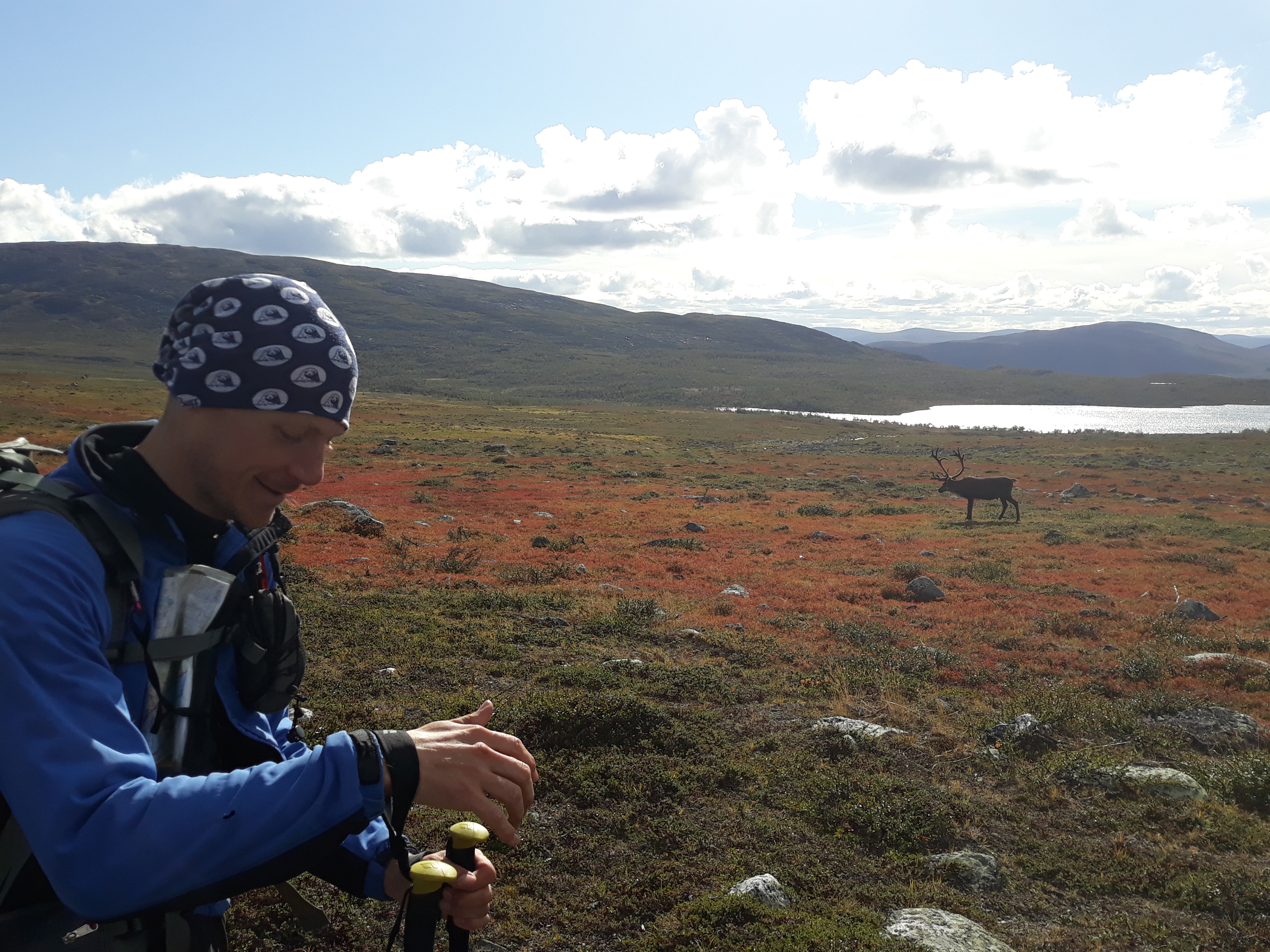Supporting Data-Driven Decision-Making At The Local And Regional Level In The Arctic
by Adam Stepien, Pavel Tkach and Anna Sinisalo | Published: 18-Jul-22 | Last updated: 18-Jul-22 | Tags : Arctic Data Decision-making Local Regional | category: NEWS
Earlier this summer, 26 scientists, experts and local, regional and national decision-makers met in an online workshop to identify key issues in linking pan-Arctic observing systems with the needs and responsibilities of subnational authorities and agencies.
The scoping Workshop on Data-driven subnational decision-making in the Arctic was organized by the University of Lapland on June 8, 2022.

Pavel Tkach photographed in Iceland.
“What we mean by data-driven decision-making in the Arctic, is a process where data from multiple sources are summarized and synthesized into applicable knowledge with Indigenous and Local Knowledge, so that informed choices or actions can be taken based on that knowledge», explains Pavel Tkach, one of the organizers of the workshop. “This is not a one-way process but rather a continuous dialogue between the knowledge users and producers”.
The participants from Finland, Canada, Norway, Sweden, the USA, and Germany, focused their discussions on two broad themes during the workshop: the use of community-based observations and traditional knowledge in subnational decision-making, and the challenges related to how understandable, relevant and hence useful data are for all kinds of users and rightsholders in the Arctic. The workshop program was built on information gathered from preliminary interviews with Arctic local and regional decision-makers, as well as published results from earlier projects. These insights were summarized in a background paper that was shared with participants before the workshop.
During the workshop, the Arctic PASSION team provided the participants with an overview of the project and some of the specific information services that are being developed based on the already identified knowledge gaps and information needs, as well as examples of the ongoing Arctic PASSION work with the Indigenous Communities.
Invited speakers from outside the project shared their experiences regarding existing good practices for connecting knowledge with decision making. Nelly Bouevitch, Adaptation Manager in the Government of Yukon - demonstrated good practices of bringing culture and traditional knowledge into policymaking in the work with local Indigenous Communities in developing the Yukon Climate Risk Assessment. Rick Thoman, Climate Investigator at the Alaska Centre for Climate Assessment and Policy/International Arctic Research Centre, and Heather McFarland, Science Communications Lead at the International Arctic Research Centre, shared their approaches to climate and environmental science communications in Alaska. The speakers emphasized the importance of the initial identification of the audience’s critical concerns, as well as focusing on the most important findings or messages in communicating research results to people.
The important role of translators of scientific data into understandable and practically useful information for subsequent use by decision-makers, particularly in small Arctic municipalities, came up strongly in the discussions afterwards.

Adam Stepien photographed in Finnish Lapland. Photo by Marcin Dymet.
“The urgent need for systems and services that make it easy for different kinds of users to benefit from the data and information came up during the discussions” says Adam Stepien, from the University of Lapland. “That is why it is crucial to understand who the users are, how they use the data, and what formats of information are the most appropriate.”
The group discussions resulted in a list of topics that need attention to further support data-driven decision-making in the Arctic. The topics included:
- Identifying and highlighting the best practices of making data accessible, useful and used in the subnational governance;
- Defining information needs for planning the green transition;
- Defining the role of knowledge translation organizations in data utilization by local and regional decision-makers and specifying how they can benefit from and contribute to the pan-Arctic data systems;
- Mapping the jurisdictional distribution of responsibilities for policy responses, preparedness, emergency measures, and information provisions in the policy sectors relevant to selected Arctic PASSION pilot services to better target the pilot services and reach relevant decision-maker and users.
The next step is to select the topics for further work and draft policy briefs on these topics – a process that will be supported by interviews with decision-makers, knowledge-holders, stakeholders, rightsholders and researchers, as well as to identify recommendations via a co-production process during the final workshop scheduled for 2024. The team will also interact with the EU Polar Cluster in order to capture relevant insights from other Arctic projects. The brief workshop report and some of the presentations are available at the Arctic PASSION Event Archive and in the Meeting Brief.
